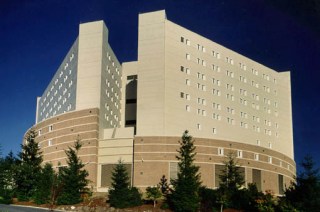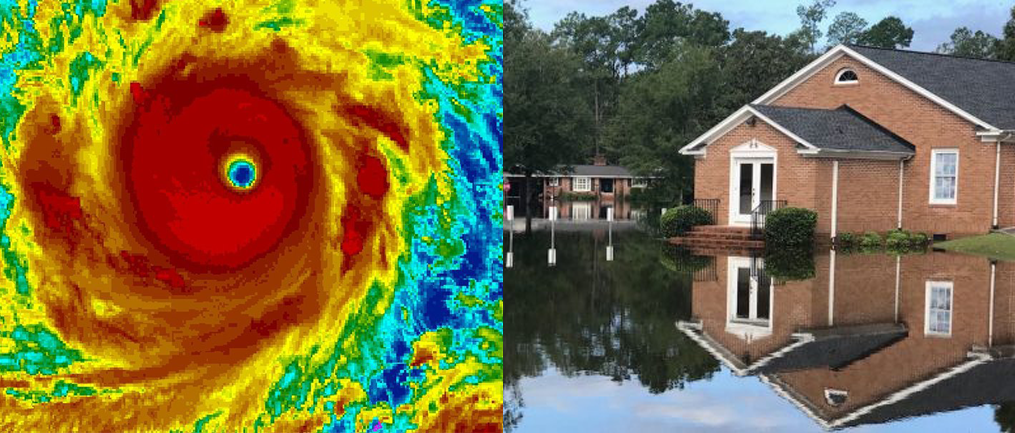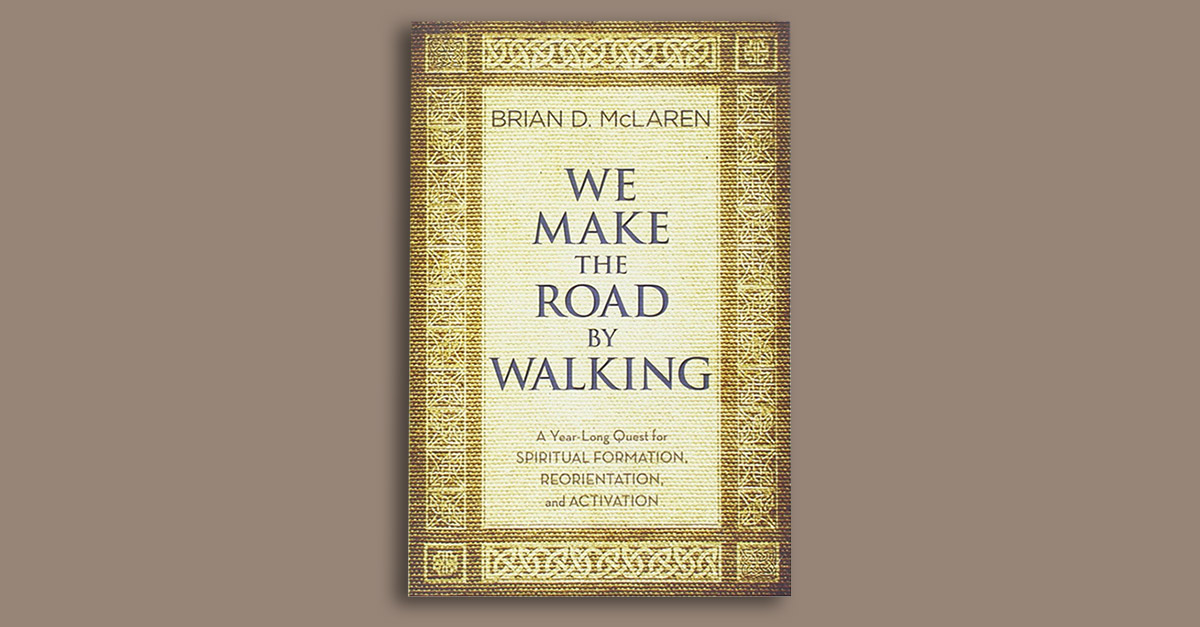Look, I’m sending you as sheep among wolves.
Therefore, be wise as snakes and innocent as doves.
– Matthew 10:16
 It’s hard to be a human these days.
It’s hard to be a human these days.
The images. The stories of children being taken from their parents. They have been burned into our collective consciousness. I want to look away, but I can’t. Love doesn’t let me.
I want to do something, but I feel powerless. Does my voice matter? Has the church’s witness eroded so much that it makes very little difference? What are we left with? Only love.
The suffering of little children and their parents tugs on my heart and leads me to search for ways to put my love to work. Public policy isn’t all made in Washington D.C. or Salem, Olympia, Boise or Juneau. It is also made when the private love of many spills over into the collective compassion and outrage of a nation and its people. Public safety and national security are not only the responsibility of law enforcement and Homeland Security. They are also our responsibility when systems of authority and power fail. Infants taken from their parents is a matter of public safety.
Love has no magic to shake away depraved policy or fix cruel laws. But it is so very powerful. Love is our lifeline to humanity.
As your Bishop, I implore you to not look away. Love needs our help.
SEE the pain of those at the border, in tents in the desert, behind chain link, and huddled under space blankets. But don’t stop there. If you SEE something SAY something – on Facebook, to a friend or family member. Share what you see and how it looks to you. Ask yourself, WHAT CAN I DO TODAY? Don’t get trapped in believing it has to be something big or that your action needs a certain number of Likes or Re-Tweets to have meaning. Speak to neighbors. Talk about what you see. The collective actions of individuals have drawn attention to this crisis and changed public policy already.
Remember that God is with you. Act and speak (and text and Tweet) with confidence, knowing that love is never the wrong answer. Life is complicated and so are the many laws that define how we relate to each other. Be clear about what you know, but also be humble about what you don’t.
 When I first heard that undocumented immigrants are held at a prison in my neighborhood, I was outraged – 174 women, some who have been separated from their children. I wanted to have my own private protest: make a sign, and go walk up and down the sidewalk. I wanted to write them all letters, saying I’m here, I know you are in there, I’m your neighbor and I care.
When I first heard that undocumented immigrants are held at a prison in my neighborhood, I was outraged – 174 women, some who have been separated from their children. I wanted to have my own private protest: make a sign, and go walk up and down the sidewalk. I wanted to write them all letters, saying I’m here, I know you are in there, I’m your neighbor and I care.
Earlier this week I attended a community meeting in my neighborhood, where 206 undocumented immigrants are housed in a Federal “Detention” Center 2 ½ miles from my home and from my office. Approximately 300 people turned out. We heard from high school students who live in terror of their parents being deporting leaving them to care for younger siblings. Of one mom arrested by ICE when she responded to a request for an interview, leaving her 3 children without a parent. We listened with love and pledged our love and support to stop family separations.
 Last night on my way home from the grocery store, I drove to the SeaTac Detention Center. As I came near, I looked at the many levels of narrow windows rising into the blue sky and prayed for the people, whose faces I could not see through those windows. Then I turned into the parking lot, passing signs warning that anyone entering the property could be subject to search. I followed the signs for visitor parking, and drove past three large white buses, with U.S. Government license plates. Later on TV I saw similar buses transporting separated children to detention facilities in Texas.
Last night on my way home from the grocery store, I drove to the SeaTac Detention Center. As I came near, I looked at the many levels of narrow windows rising into the blue sky and prayed for the people, whose faces I could not see through those windows. Then I turned into the parking lot, passing signs warning that anyone entering the property could be subject to search. I followed the signs for visitor parking, and drove past three large white buses, with U.S. Government license plates. Later on TV I saw similar buses transporting separated children to detention facilities in Texas.
Why did I go there? What difference did it make? I went to SEE the place where my neighbors are living. To IMAGINE their lives. To WONDER if there are separated children in that facility as well as adults. To ASK God what it means to love with my whole heart, soul, strength and mind?
And now I’m asking you to engage.
LOOK at the children. PRAY for all who flee violence in their homeland, desiring a better life. Look at the facilities where they are being held. If you are flying, NOTICE if there are unaccompanied minors traveling with escorts. LOCATE the nearest detention facility. Notice if buses are coming and going. FIND OUT who is organizing concerned people for public witness and policy advocacy. READ the attached resource from our Board of Church and Society. And WATCH for how to put love into action.
I don’t know what my next step is. I’ll talk with others who are already involved.
Finally, pace yourselves. While yesterday’s executive order may reverse the most egregious policies, it does not resolve the separations, or the crisis on the border, or the terror people across America live in.
We will need the love that never ends. We need to be committed for the long haul.
May we be the real, living presence of Christ in the world as we SEE, PRAY, READ, SPEAK and ACT.

Bishop Elaine JW Stanovsky | Greater NW Area

Our witness cannot stop now
Rev. Dr. Susan Henry-Crowe, June 20, 2018
In response to President Trump’s executive order, the general secretary calls on United Methodists for further action on immigration.
Because of persistent public pressure, President Trump signed an executive order Wednesday reversing the administration’s practice of forcibly separating children from their parents. I thank God for the faithful witness of thousands of United Methodists reflecting Christ’s love and compassion into this broken world.
This action does not, however, solve the problem.
 While this executive order ends the practice of family separation, it continues what the administration calls a “zero tolerance” policy. This now means that families seeking refuge in the United States can be held together, in detention, indefinitely.
While this executive order ends the practice of family separation, it continues what the administration calls a “zero tolerance” policy. This now means that families seeking refuge in the United States can be held together, in detention, indefinitely.
Our United Methodist Social Principles and Resolution #3281 are clear: we support policies that compassionately welcome immigrants and respect their human rights.
Policies that jail families — whether separately or together — fail to reflect our shared values of compassion, dignity, justice and love. Our options are not limited to jailing families together or jailing parents and children separately.
Alternatives to family detention, such as the Family Case Management Program, have been shown to be compassionate and effective. The administration terminated this program last year and instituted “zero tolerance” policies in its place this year.
We must continue the outpouring of compassion and action that ended the administration’s immoral and unjust practice of family separation. We must continue to work for a world in which:
- Children who are detained are compassionately cared for.
- Families who are separated are reunited.
- Families will not be held indefinitely.
- Workers should no longer fear workplace raids disrupting family and community.
- Survivors of domestic abuse and gang violence have asylum protections reinstated.
- DACA recipients are cared for through a legislative solution that leads to a pathway to citizenship.
The current state of our immigration policies is anything but compassionate and effective.
The U.S. House of Representatives is voting today on immigration legislation. Call your member at 202.224.3121 and make sure your voice is heard. You can share that The United Methodist Church calls for “the United States government to immediately cease all arrests, detainment, and deportations of undocumented immigrants, including children, solely based on their immigration status until a fair and comprehensive immigration reform is passed.“
Our Church calls us to welcome the migrant, and we must do that in our churches, communities and governmental systems.
Our witness cannot stop now.














